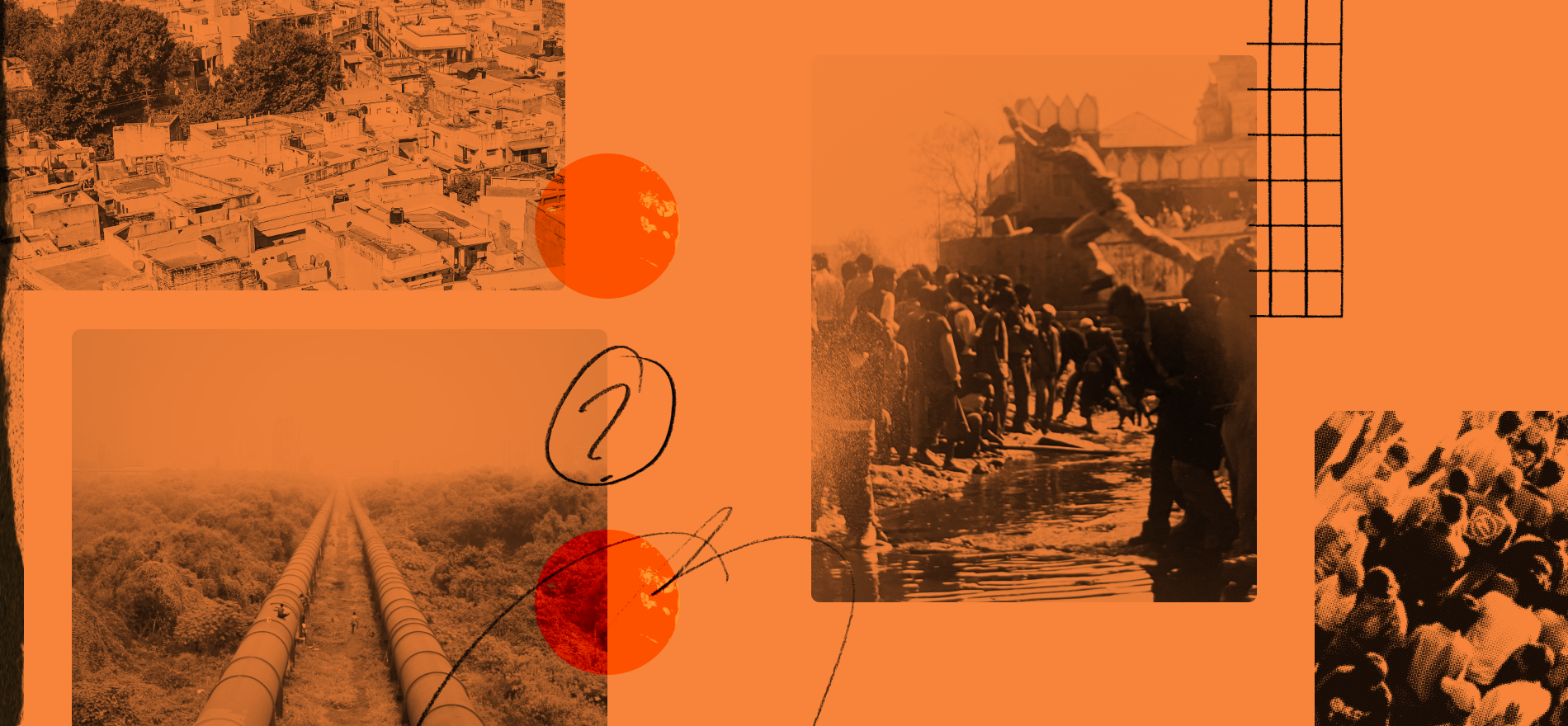The theme for the 2023 World Press Freedom Day was “Shaping a Future of Rights: Freedom of expression as a driver for all other human rights,” signifying the enabling element of freedom of expression to enjoy and protect all other human rights.
For the occasion, Meedan hosted a Twitter Spaces with partner organizations focusing on making information accessible.
Eric Mugendi, Meedan Program Manager for the Sub-Saharan Africa region, was joined by Christina Cavalcanti from The Public Source and Abel Wabella from Inform Africa, both partners under Meedan’s Check Global program. The conversation focused on advances made and challenges faced by independent media organizations working to safeguard freedom of expression, and how a free and independent media contributes to the advancement of other rights and freedoms.
The Public Source and Inform Africa are a great example of how an organization uses information in meaningful ways to advance the rights of marginalized communities, to give a platform for the advancement of other rights, and to inform policy at a local, national and international level.
Here are the takeaways from that talk.
Press freedom: A fundamental tool for empowerment
- Both speakers highlighted from their experiences working with and running independent media organizations in Ethiopia and Lebanon that freedom of the press is a critical component of a free and open society. For them, World Press Freedom Day is an opportunity for journalists to highlight the work that they do, and to raise awareness about the obstacles they face when doing this work, such as censorship, harassment, intimidation, physical violence, and in some cases, death. It is a day that highlights the role that the media has in informing the public, and pushing for public accountability. This is a challenge for many working in countries with repressive governments, as both speakers attested to, and the risks are made worse by the emergence of new threats such as online harassment and internet shutdowns.
- According to Christina Cavalcanti, freedom of the press is a tool for empowerment, ensuring transparency and the conviction that the people know what they are entitled to and they know what to do to push for these rights, and to safeguard democratic processes as a counter to socio-economic and systemic oppression. This underpins the place of press freedom as a foundational right through which other rights can be safeguarded. For Abel Wabella, freedom of the press is fundamental. He noted that since 2018, Ethiopia has undergone political reform that has led to significant social changes, including in the relationship between the government and the media. One of the contributing factors to the Tigray Conflict, he points out, was the limited flow of credible information from the region, which in turn contributed to the spread of harmful false information.
- For both speakers, the global push to make the press more free has lost momentum, especially as actions by governments, such as restricting the free flow of information online, arresting journalists, and limiting the ability of media organizations to operate, are barely getting as much attention as they did in the past. Abel Wabella pointed out that Internet shutdowns in Ethiopia attracted international attention in previous years, but the same action in the past year has barely elicited a mention. This, Wabella noted, is likely to encourage bad actors, as their actions no longer seem to have consequences.
Government prosecution
- Christina Cavalcanti pointed out that prosecution of journalists by governments has had an outsized role in the suppression of journalism in the North-Africa and Western-Asia (NAWA) region. Journalists have been attacked directly through intimidation and harassment and indirectly through targeting the media platforms that publish their work and passing restrictive laws that make it impossible for the media to operate independently. Cavalcanti’s organization, The Public Source, was summoned for an investigation by the Anti-Cybercrime Bureau, an agency that has no authority over media regulation in Lebanon, on behalf of a political party that they had investigated, showing how libel laws are used and abused to silence the press. She also identified similar examples such as the repression of independent platforms like Mada Masr in Egypt and crackdowns on dissenting voices in Tunisia through a far-reaching law that criminalizes free speech as having a chilling effect on press freedom.
Social media platforms: New tools of press repression
- Social media platforms have previously been used by activists to push for media freedom, but increasingly these platforms have become tools of repression and targeting of media practitioners. Abel spoke about how Ethiopians used social media in Ethiopia to organize protests against the government which contributed to the reforms that the country has experienced over the last four years. The government in Ethiopia has since adopted social media heavily, with some claiming that they are using these online spaces to spread propaganda and manipulate online discourse to their advantage. Cavalcanti called for the platforms to be more transparent with the drafting and implementation of their content moderation policies, particularly how things are flagged and taken down, and how they define hate speech and harassment for example. She further stated that social media companies need to be transparent with the communities that are using their platforms to find out the best ways to make the spaces they occupy are safe and inclusive without contributing
The survival of independent media
- Both Abel Wabella and Christina Cavalcanti identified financial stability and funding as a challenge, particularly the cost of operating independent media and the need to find ways to operate sustainably. They also identified the increasing public awareness of independent media and the work that they do as a big opportunity, and something both of them are looking to capitalize on as they expand their capabilities and reach. The place of the media in all these conversations is clear, and as an enabler for and a key contributor to the achievement of these other fundamental rights, both speakers agreed that much has been accomplished, but much more remains to be done to safeguard the freedom of the press.
Read more about our partner activities here, and learn more about our Check Global program here.
World Press Freedom Day is celebrated every May. This year marked 30 years since the first World Press Freedom Day for the observance of freedom of the press was enacted by UNESCO, and the event focused on celebrating the fundamental principles of press freedom, assessing the state of press freedom throughout the world, defending the media from attacks on its independence, and paying tribute to journalists who have lost their lives in the line of duty.
We collaborated with 53 partner organizations worldwide to design and carry out our 2024 elections projects. We extend special gratitude to our lead partners in Brazil, Mexico and Pakistan, whose work we highlight in this essay.



The 2024 elections projects featured in here would not have been possible without the generous support of these funders.












